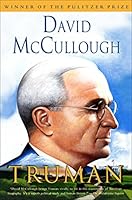Sublime
An inspiration engine for ideas
In 1946, President Truman appointed, by executive order, a blue-ribbon committee to study the civil rights problem in all its aspects, and the committee’s report, “To Secure These Rights,” called not only for a permanent FEPC, abolition of the poll tax, and federal laws against lynchings but also for the establishment of a permanent Commission on
... See moreRobert A. Caro • Master of the Senate: The Years of Lyndon Johnson III
the end. The next day, two nationalists in New York, Oscar Collazo and Griselio Torresola, made their way down to Washington, D.C. They were seeking Harry Truman, who was living not at the White House (it was being renovated), but at the nearby Blair House. They wore suits, and they carried guns. Their idea was simple: shoot their way into Blair
... See moreDaniel Immerwahr • How to Hide an Empire
The Truman Doctrine articulated a willingness to provide economic and military aid to Western European countries under pressure; Greece and Turkey were early recipients. The Marshall Plan, named for President Truman’s secretary of state George Marshall and announced at Harvard in June 1947, in what is arguably the most significant commencement
... See moreRichard Haass • The World
The Korean War had no congressional involvement because President Truman claimed that since the UN Security Council had declared a police action, and the United States was part of the UN, waging war in Korea required no congressional approval.
George Friedman • The Storm Before the Calm: America's Discord, the Coming Crisis of the 2020s, and the Triumph Beyond
On the Fourth of July, 1947—he had spoken to the NAACP just the week before—President Truman delivered a speech at Monticello, Thomas Jefferson’s mountaintop house. In the wake of World War II, Truman said, “We have learned that nations are interdependent, and that recognition of our dependence upon one another is essential to life, liberty, and
... See moreJon Meacham • The Soul of America: The Battle for Our Better Angels
During the Korean War, Harry Truman went to war without any authorization of Congress. The Cuban missile crisis was a purely presidential decision, as was the 1998 intervention in Kosovo. The congressional role in authorizing war was at least diminished and sometimes omitted.
George Friedman • The Storm Before the Calm: America's Discord, the Coming Crisis of the 2020s, and the Triumph Beyond
In his 1948 message on civil rights Truman was doing just that. “We believe that all men are created equal and that they have the right to equal justice under law,” the president wrote to Congress. “We believe that all men have the right to freedom of thought and of expression and the right to worship as they please. We believe that all men are
... See moreJon Meacham • The Soul of America: The Battle for Our Better Angels
Worried that Truman’s move might improve the chances of the hated Harriman, many southerners felt they could not wait any longer for a Johnson commitment to stay in the race and climbed back off the fence—into Stevenson’s camp.
